Rhinoplasty in Tunisia
Search and Compare the Best Clinics and Doctors at the Lowest Prices for Rhinoplasty in Tunisia
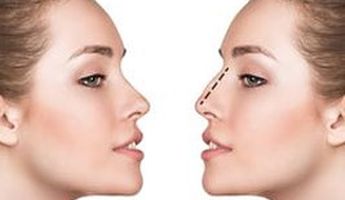
Find the best clinics for Rhinoplasty in Tunisia
With Medijump you can browse 9 facilities offering Rhinoplasty procedures in Tunisia. The cheapest price available is $1,489 in Tunis. And for the cheapest price globally, prices start from in .
Rhinoplasty in Tunis
Price: $ 1,489
Rhinoplasty in Monastir
Price: $ 1,495
From 4 verified reviews
Samir Derradji, 18 March 2018
Hello I follow sick dalger Algeria I ask you a preforma for an opairation on the colon .Thank you
From 11 verified reviews
Craig Mills, 30 July 2019
Excellent private health care looked after my soon after he drowned in sahara beach hotel this month would definatly recommend being cared for there staff were amazing
From 37 verified reviews
Saoussen Saidani, 13 June 2020
My 12 year old daughter Lina has had surgery Pancreas tumorHeavy Operation which went very wellI thank all the staff of the Pasteur clinic for their hospitality and their hygiene ...I thank the doctors who attended the operation and in particular the surgeonAYADI Sofiene who accompanied us from the start for his professionalism as well as DR Walid Miraoui. The discovery of this tumor is done in a very short time a week to manage allThe support of Surgeon Ayadi Sofiene was really perfect as a parent we were reassured and above all in confidence.And especially I thank them for the moral support of My Daughter Lina who kept the smile until the end and who It is found in Total confidenceThank you so much for saving our childMr er Mrs Saidani
From 11 verified reviews
Toumi Mondher, 02 April 2019
The Department of Extraction and Billing at the Center of Imaging and Radiology, two patients, treated me with a reputation as a Tunisian clinic, and I bear the responsibility to speak this
From 9 verified reviews
Ibtyhel Ben bassine, 19 April 2019
I slept my little girl on Thursday, March 8, 2018, was at Top, my gygy, the nurses .... they put me in a calm and clean environment with a service of excellence .. thank you prts and especially pr Dr. hichem
Clinique Taoufik, located in Boulevard Mohamed Bouazizi, Tunis, Tunisia offers patients Rhinoplasty procedures among its total of 225 available procedures, across 24 different specialties. Currently, there's no pricing information for Rhinoplasty procedures at Clinique Taoufik, as all prices are available on request only, whilst the national average price is approximately $1,983. There are many specialists available at the Clinic, with 10 in total, and they are accredited by ISO 9001:2008
Clinic Apollon, located in Boulevard Mohamed Bouazizi, Tunis, Tunisia offers patients Rhinoplasty procedures among its total of 90 available procedures, across 1 different specialties. Currently, there's no pricing information for Rhinoplasty procedures at Clinic Apollon, as all prices are available on request only, whilst the national average price is approximately $1,983. All procedures and treatments are undertaken by just a small team of specialists, with 2 in total at the Clinic, and they are not accredited by any recognized accreditations institutes
Cosmeticare Travel, located in Boulevard Mohamed Bouazizi, Tunis, Tunisia offers patients Rhinoplasty procedures among its total of 34 available procedures, across 4 different specialties. Currently, there's no pricing information for Rhinoplasty procedures at Cosmeticare Travel, as all prices are available on request only, whilst the national average price is approximately $1,983. There is currently a lack of information available on the specialists practicing at the Hospital, and they are not accredited by any recognized accreditations institutes
Aesthetica Tour, located in Boulevard Mohamed Bouazizi, Tunis, Tunisia offers patients Rhinoplasty procedures among its total of 42 available procedures, across 9 different specialties. Currently, there's no pricing information for Rhinoplasty procedures at Aesthetica Tour, as all prices are available on request only, whilst the national average price is approximately $1,983. All procedures and treatments are undertaken by the lead specialist at the Hospital, and they are not accredited by any recognized accreditations institutes
- Home
- Tunisia
Compare Before & After Photos of _procedure_photos.phpRhinoplasty
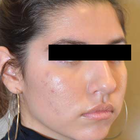
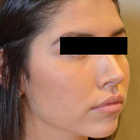
Half-side view
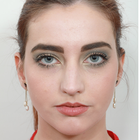
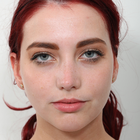
Front view
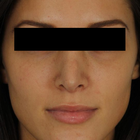
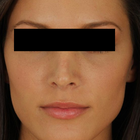
Front view
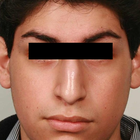
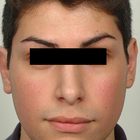
Front view
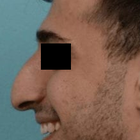
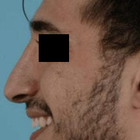
Full-side view
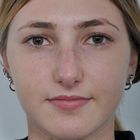
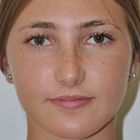
Front view
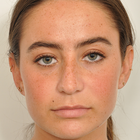
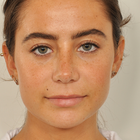
Front view
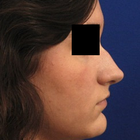
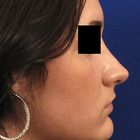
Full-side view
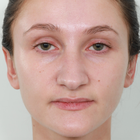
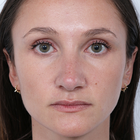
Front view
WHY US?
At Medijump, we're making medical easy. You can search, compare, discuss, and book your medical all in one place. We open the door to the best medical providers worldwide, saving you time and energy along the way, and it's all for FREE, no hidden fees, and no price markups guaranteed. So what are you waiting for?

Free

Best Price

Widest Selection

Risk-Free
What you need to know about Rhinoplasty in Tunisia

Rhinoplasty, commonly known as the “nose job,” is plastic surgery to change the shape of the nose and to improve its function. This procedure can be performed for medical and cosmetic reasons. Those with breathing problems caused by a birth defect, deviated septum, sinusitis, or an injury to the nose, as well as those who are not happy with the appearance of their nose, can undergo rhinoplasty.
Rhinoplasty has a number of benefits. However, the most compelling reason for patients to have this surgery is to improve the appearance of their noses, which can boost their self-esteem significantly. Besides altering the form and size of your nose, the procedure can also strengthen the bridge, narrow the nostrils, and reshape the tip.
While anyone can undergo rhinoplasty, teenagers are advised to wait until their nose has reached its adult size.
What does a Rhinoplasty Procedure Involve?
During rhinoplasty, you will be given local or general anesthesia to make sure that you are comfortable and you don't feel any pain. Your surgeon might perform the procedure inside your nose or through an incision at the base of your nose.
Changing the shape of your nasal bones or cartilage can be done in several ways, depending on how much needs to be added or removed, available materials, and your nose’s structure.
If your nose needs to be augmented because you want to increase its size, prosthetic implants or cartilage from your nasal septum or ear is used. Once your surgeon is done altering the shape of your nose and correcting any defect, they will place the nose’s skin and tissue back, then close the incisions with stitches.
How Long Should I Stay in Tunisia for a Rhinoplasty Procedure?
Depending on the complexity of the procedure and the type of anesthesia used, you may be able to leave the hospital on the same day or stay in the hospital for a day or two. The surgery itself takes around 1.5 to 3 hours to complete. Once you are discharged from the hospital, you should not leave Tunisia right away. Instead, plan to stay about 10 to 14 days for initial recovery and follow-up checkups. A week following the surgery, your surgeon will remove your stitches.
What's the Recovery Time for Rhinoplasty Procedures in Tunisia?
You generally need to wait at least 2 to 3 weeks until you can resume most of your normal activities. However, you should not perform any strenuous activities, such as intense exercise, for about 3 to 6 weeks. During the first few days after the surgery, you will experience some swelling around your eyes, but these will subside within 3 to 14 days. You will also have to wear a nasal splint for about a week following the surgery.
What sort of Aftercare is Required for Rhinoplasty Procedures in Tunisia?
Since you may experience some discomfort, your surgeon will give you painkillers to ease any pain and discomfort. Make sure to take the pain medication as prescribed. For a couple of weeks following the surgery, you should not blow your nose, as well as laughing or talking too much. You also need to avoid any clothes that need to be pulled over your head and glasses on your nose for a few weeks. Always make sure to cover your nose while going out in the sun during your recovery period.
It's important that you avoid bumping or hitting your nose, and keep your nose safe and protected from anything that could misalign the bones and undo the results. To help you recover smoothly and quickly, eat healthy and nutritious food.
What's the Success Rate of Rhinoplasty Procedures in Tunisia?
Rhinoplasty is considered one of the most complicated facial cosmetic surgeries. However, thanks to the advances in technology and surgeons’ extensive experience, the procedure has a very high success rate of between 85% and 90%.
Although rhinoplasty is generally safe, it does carry some potential risks of complications and side effects, including bleeding, infection, allergic reaction to the anesthesia, permanent numbness in your nose, difficulty breathing through the nose, an uneven-looking nose, discoloration, persisting pain, scarring, septal perforation, and a need for additional surgery.
Are there Alternatives to Rhinoplasty Procedures in Tunisia?
If you are unable to undergo rhinoplasty, you can opt for its minimally invasive or noninvasive alternatives, such as filler injections or Botox. Both filler injections and Botox are noninvasive and require only a very short visit with your doctor. It works by injecting the substance into your nose to change its shape. Many people choose these methods because it is not as painful as rhinoplasty, requires little to no downtime, and no incision or stitches are involved.
If you want to improve your breathing, you may be recommended to use nasal strips. The nasal strip is a type of bandage with adhesive-embedded splints or plastic ribs that is applied across the bridge of the nose and the sides of the nostrils. It can keep the airway open, making breathing easier.
Whilst the information presented here has been accurately sourced and verified by a medical professional for its accuracy, it is still advised to consult with your doctor before pursuing a medical treatment at one of the listed medical providers
No Time?
Tell us what you're looking for and we'll reachout to the top clinics all at once
Enquire Now

Popular Procedures in Tunisia
Prices Start From $404

Prices Start From $1,945

Prices Start From $192

Prices Start From $500

Recommended Medical Centers in Tunisia for Rhinoplasty

- Interpreter services
- Translation service
- Religious facilities
- Medical records transfer
- Medical travel insurance
- Health insurance coordination
- TV in the room
- Safe in the room
- Phone in the room
- Private rooms for patients available

- Interpreter services
- Translation service
- Religious facilities
- Medical records transfer
- Medical travel insurance
- Health insurance coordination
- TV in the room
- Safe in the room
- Phone in the room
- Private rooms for patients available

- Interpreter services
- Translation service
- Religious facilities
- Medical records transfer
- Medical travel insurance
- Health insurance coordination
- TV in the room
- Safe in the room
- Phone in the room
- Private rooms for patients available

- Interpreter services
- Translation service
- Religious facilities
- Medical records transfer
- Medical travel insurance
- Health insurance coordination
- TV in the room
- Safe in the room
- Phone in the room
- Private rooms for patients available

- Interpreter services
- Translation service
- Religious facilities
- Medical records transfer
- Medical travel insurance
- Health insurance coordination
- TV in the room
- Safe in the room
- Phone in the room
- Private rooms for patients available

- Interpreter services
- Translation service
- Religious facilities
- Medical records transfer
- Medical travel insurance
- Health insurance coordination
- TV in the room
- Safe in the room
- Phone in the room
- Private rooms for patients available

- Interpreter services
- Translation service
- Religious facilities
- Medical records transfer
- Medical travel insurance
- Health insurance coordination
- TV in the room
- Safe in the room
- Phone in the room
- Private rooms for patients available

- Interpreter services
- Translation service
- Religious facilities
- Medical records transfer
- Medical travel insurance
- Health insurance coordination
- TV in the room
- Safe in the room
- Phone in the room
- Private rooms for patients available

- Interpreter services
- Translation service
- Religious facilities
- Medical records transfer
- Medical travel insurance
- Health insurance coordination
- TV in the room
- Safe in the room
- Phone in the room
- Private rooms for patients available

- Interpreter services
- Translation service
- Religious facilities
- Medical records transfer
- Medical travel insurance
- Health insurance coordination
- TV in the room
- Safe in the room
- Phone in the room
- Private rooms for patients available
Rhinoplasty in and around Tunisia
About Tunisia
Tunisia is one of the few countries which can cater to everyone and it manages to combine climate, golden beaches, history, and shopping for an “all-around” experience. It has a high standard of healthcare and an excellent reputation for cosmetic surgery. Cosmetic and plastic surgeons are regulated by the Tunisian Ministry of Health and the private clinics have state-of-the-art equipment and English-speaking staff. Tunisia welcomes an ever-increasing number of medical tourists each year, many of whom travel for Rhinoplasty procedures. Medical Tourists travel from all across the globe, particularly from Europe and neighboring African countries with an inferior healthcare system. Popular medical tourism destinations outside of the capital, Tunis, include Sousse and Mahdia
Popular Parts of Tunisia
- Tunis, the country’s capital, is overflowing with a history that dates from the 4th Century BC. The city is divided into two parts, the old city known as the medina and the new city (or Ville nouvelle in French). Many tourists visit Tunis to see the Archaeological Site of Carthage which is also a UNESCO World Heritage Site. The beautiful Islamic architecture in medina also attracts many tourists to the city.
- Tozeur is known as a home to an enchanting desert oasis, which was a place to rest and refuel for caravans crossing the Sahara. Another main attraction in the city is the medina, where tourists can find lines of beautiful brick-patterned traditional dessert houses. Chott el Djerid, Sahara’s largest salt pan, is a popular day-trip destination.
- Sousse is located on the coast of the Mediterranean Sea. It offers good beaches with a clear blue sea. The city has been fought over by the Romans, Arabs, and Europeans, giving it a colorful history and culture. Sousse Archeological Museum is one of the most visited sites in the country; it has the second largest collection of mosaics in the world.
- Hammamet is the country’s original tourism resort. The city has beautiful gardens filled with oranges, lemons, and other citrus plants. It also has wonderful sandy beaches with crystal clear water. Just like any other city in Tunisia, this city is also brimming with interesting histories. Sites such as The Gafsa Museum and Bardo Museum will give insights about the Islamic faith and culture.
- Douz, also known as “the gateway to the Sahara.” Tourists who want to experience the Sahara Desert come to this city. Take a camel trip or a 4-wheel-drive into the Sahara or see the Museum of the Sahara that has an interesting collection portraying traditional Saharan life.
Weather and Climate in Tunisia
The North of Tunisia has a subtropical Mediterranean climate with mild rainy winters and hot summers. The South and inland areas have a tropical desert climate.
The weather is relatively comfortable throughout the year. Summer starts in June and lasts until August. The average temperature is between 28 °C to 32 °C with July and August being the hottest months. The heat is not as bad on the coast because of the seaside breeze. Be aware that July to September is the jellyfish season.
The heat decreases in autumn and the weather is somewhat more comfortable. There are occasional rain showers in September. The temperature in October can be like summer during day time, but cold at night. October has more rain than September. The season lasts for three months from September to November with an average temperature of around 19 °C to 29 °C.
The weather in winter can be uncertain. The average temperature is between 16 °C and 18 °C, but it can drop to 7 °C at night and below 0 °C in highlands and deserts and a clear sky is rare during this season.
Spring comes in March and the temperature can rise to 20 °C. Mornings and nights are cold; there is still a high probability of rains and thunderstorms at the end of this season.
Getting Around in Tunisia
Tunisia has several international airports. The main airport is Tunic-Carthage International Airport. It has international connections with major European countries and the Middle East. The airport is the hub for Tunisair, Tunisair Express, and Nouvelair. Other airports that have international flights are Enfidha-Hammamet, Monastir Habib Bourguiba, Djerba-Zarzis, and Tabarka-Aïn Draham.
Taxis and buses are available to get to the city center from Tunis Airport. The SNT bus line departs every 30 minutes from the airport, the ticket costs less than 1 TND. There is also the TUT bus which departs every 15 minutes and is more luxurious and expensive.
Airport taxis are available at the airport taxi stand and are usually metered. Always make sure that the driver turns the meter on before riding the taxis. A journey to the city should cost around 5 TND. An extra cost will be added if you have baggage.
Getting around in Tunisia can be done by several transportation modes. Tunisair Express provides domestic flights between Tunis, Tozeur, Djerba, and Gabes. The Train is also available and the national train company in the country is SNCFT that runs modern and comfortable trains from Tunis to Sousse, Sfax, and Monastir. There are three classes of service that tourists can choose. The fare from Tunis to Sousse is between 6 to 10 TND. The long-distance bus is an economical option to travel between big cities such as Tunis, Hammamet, and Nabeul. The buses usually depart every 30 minutes.
Tourist Visas in Tunisia
Citizens of 97 countries (including Australia, China Singapore, the United States, and Russia) can visit and stay in Tunisia for up to 90 days without a visa. Other nationalities are advised to check with their local Tunisia embassy. Tunisia provides an online visa application for nationalities that needs a visa to enter. The eVisa will simplify the process of obtaining travel authorization to enter the country.
Additional Information
-
Local Currency: the local currency is the Tunisian dinar (TND). 1 USD converts to 2.61 TND.
-
Money & Payments: ATMs can be found in most cities and in all tourist areas. Many ATMs have withdrawal limits of 400 TND. Credit cards (MasterCard and Visa) are accepted in major cities and tourist areas. They can be used for shops, car hire, or top-end accommodation. Always make sure to carry cash if you want to travel outside major cities. Tipping is not necessary but will be appreciated.
-
Local Language: Arabic is the official language of Tunisia. French is very common due to the country’s former status as a French protectorate. English is still very limited except in the tourist areas and expensive hotels.
-
Local Culture and Religion: Islam is the major religion with 98% of the population identified as Muslim. There is a small group of Christian and Jews. Since most of the population is Muslim, always remember that the dress code is important in Tunisia.
-
Public Holidays: Tunisia celebrates major Islam holidays. The country hosts several annual festivals throughout the year such as The International Festival of the Sahara, Yasmine Hammamet Festival, and the International Festival of Carthage.
Popular Searches
- Plastic Surgery in Thailand
- Dental Implants in Thailand
- Hair Transplant in Thailand
- Breast Augmentation Thailand
- Gastric Sleeve in Thailand
- Gender Reassignment Surgery in Thailand
- Laser Hair Removal in Bangkok
- Botox in Bangkok
- Dermatology in Bangkok
- Breast Augmentation in Bangkok
- Coolsculpting in Bangkok
- Veneers in Turkey
- Hair Transplant in Turkey
- Rhinoplasty in Turkey
- Stem Cell Therapy in Mexico
- Rhinoplasty in Mexico
- Liposuction in Mexico
- Coolsculpting in Tijuana
- Rhinoplasty in Korea
- Scar Removal in Korea
- Gastric Sleeve in Turkey
- Bone Marrow Transplant in India
- Invisalign in Malaysia
- Plastic Surgery in the Dominican Republic
- Tummy Tuck in the Dominican Republic
- Plastic and Cosmetic Surgery in Poland
- Rhinoplasty in Poland
- Hair Implant in Poland
- Dental Implants in Poland
- IVF in Turkey








